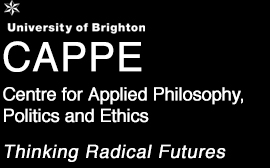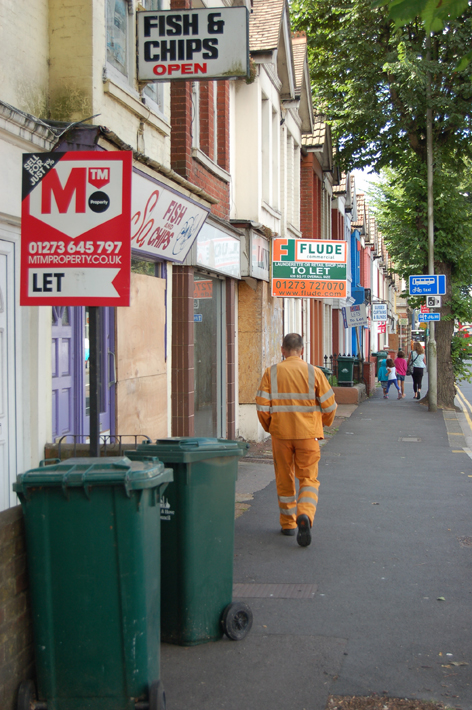3rd Sep 2014 - 5th Sep 2014
Grand Parade, University of Brighton

Wednesday 3rd – Friday 5th September 2014

Keynote speaker: Imogen Tyler
Lancaster University, author of Revolting Subjects: Social Abjection and Resistance in Neoliberal Britain
“The Stigma Doctrine: neoliberalism in everyday life”
Theatre Performance: Dear TINA: “We are sorry for the inconvenience, but this is a revolution”
Aylwyn Walsh, University of Lincoln, Ministry of Untold Stories and Myrto Tsilimpounidi, University of East London, Ministry of Untold Stories
Film Screening: “Secrete City”
Written by Lee Salter, University of Sussex, and directed by Michael Chanon, University of Roehampton.
In the wake of the 2008 financial crisis many declared neoliberalism dead. Others have characterised it as a zombie, ideologically dead but nevertheless stumbling on. Five years on and the neoliberal revolution from above continues to roll on, relentlessly transforming all aspects of society and the lives of those subjected to it. Today neoliberalism looks as inexorable as ever; not only surviving the crisis but capitalising upon it. From education to housing, from popular culture to social welfare and from food production to the work place, in the last three decades neoliberalism has been working across the globe to transform every aspect of social life. This conference explores the ways in which neoliberalism impacts upon and is transforming the quotidian and therein the very ways in which we conceive of ourselves and others; the past, the present and the very horizons of the future.
Taking inspiration from recent work by Wendy Brown, Phillip Mirowski, Imogen Tyler and other scholars working in this area, this international, interdisciplinary conference brought together scholars working in a range of different fields and from a variety of perspectives to reflect on the impact neoliberalism has had, and continues to have, on the everyday lives of those subjected to it. How and in what ways is neoliberalism transforming the everyday practices and forms of understanding that shape our social reality? What kind of subjects does it seek to interpellate and by what means? How is neoliberalism represented, and not represented, in the media, in popular culture and the arts? How does this impact on the ways in which “we” understand ourselves and the world in which we live? How can neoliberalism be resisted or even overthrown? What might a post-neoliberal future look like?
Neoliberalism-final-cfp.pdf at University of Brighton, College of Arts and Humanities [pdf 67.3 KB]
NLEL-Conference-Programme.pdf at University of Brighton, College of Arts and Humanities [pdf 74.7 KB]
Conference-Paper-Abstracts.pdf at University of Brighton, College of Arts and Humanities [pdf 270.1 KB]